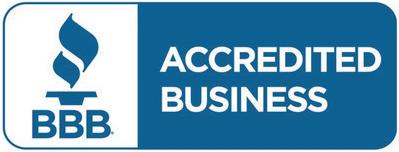








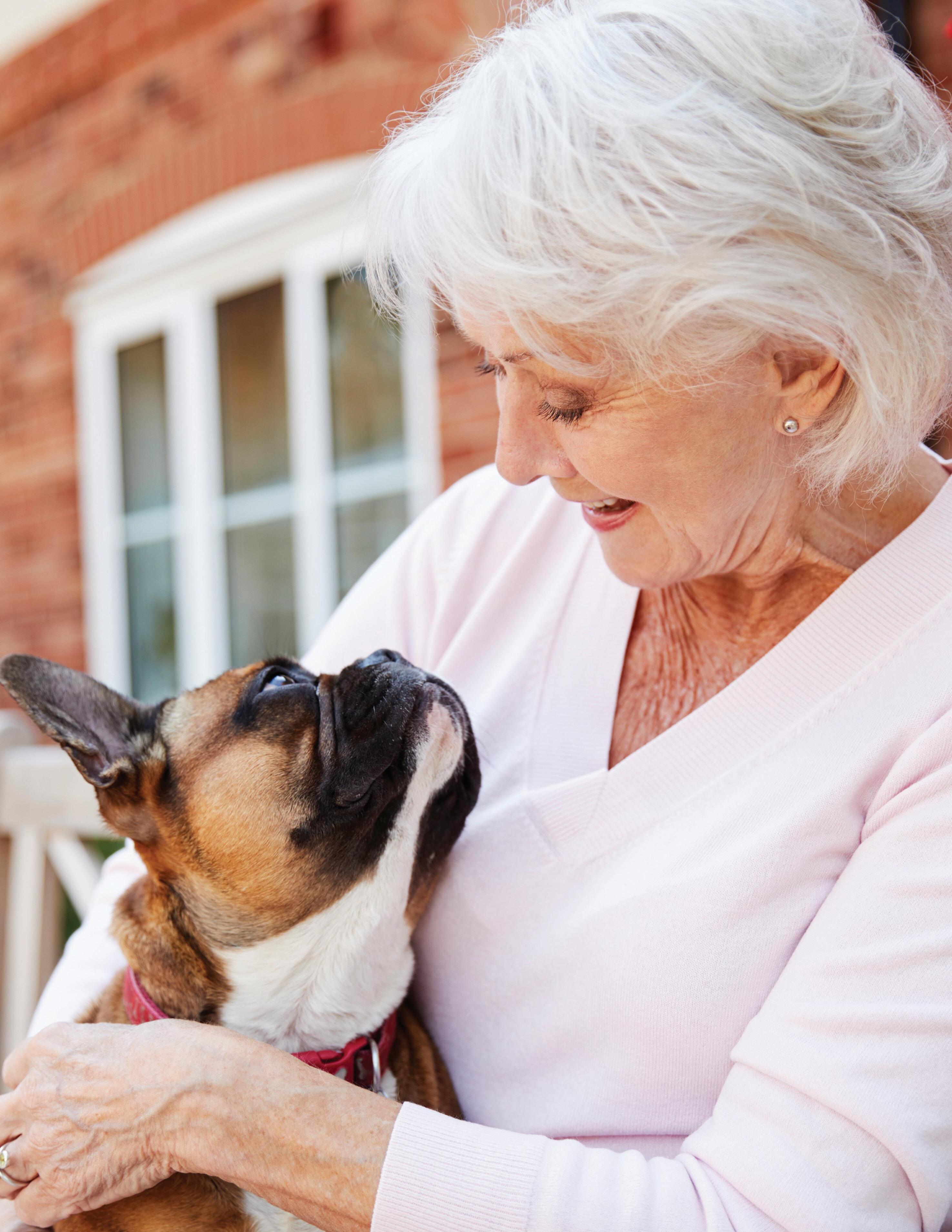

◗ FRAUD AND SCAMS
◗ VEHICLE SECURITY
◗ HOME SAFETY
◗ WILLS
◗ POWER OF ATTORNEY
◗ SIGNS OF ABUSE
◗ AND MORE
















































































































































































































































































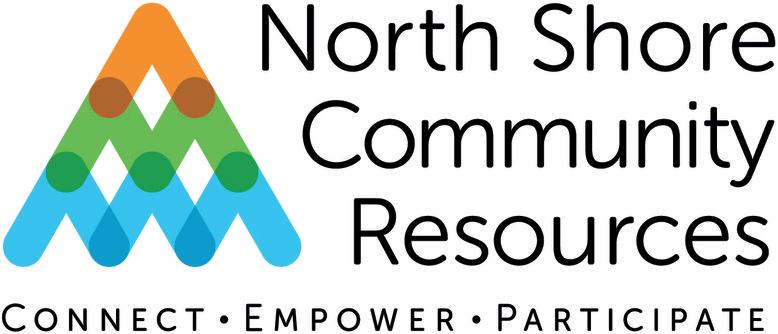
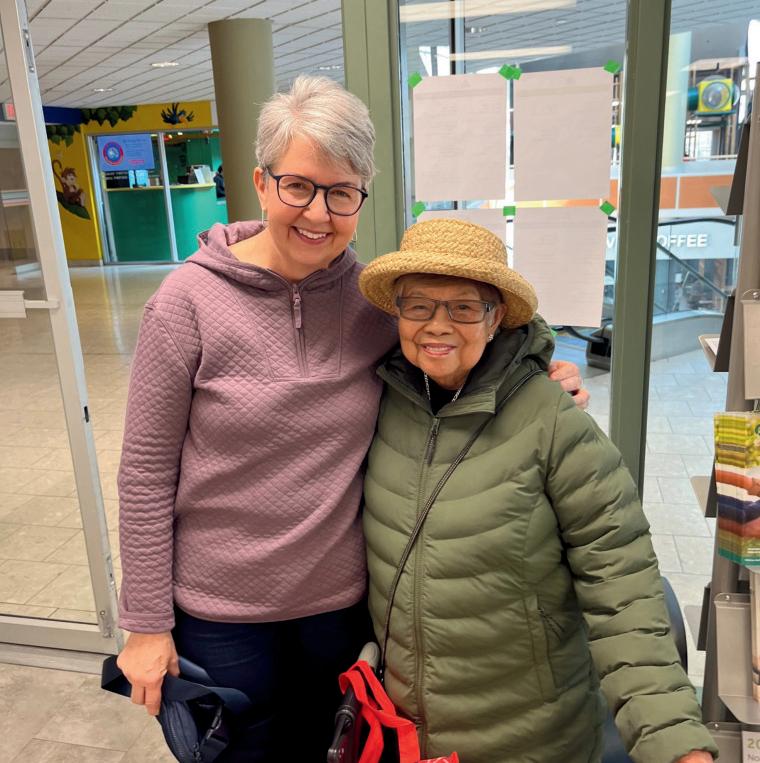



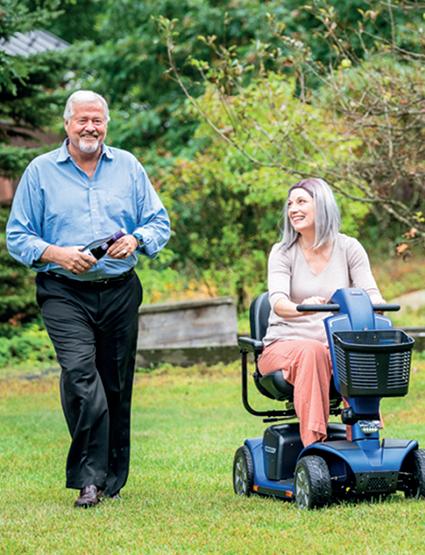





This guide is for seniors, their family members, caregivers, friends, and anyone else who may find it useful. It isn’t meant to include everything but tries to answer some common concerns when it comes to seniors’ safety and security. Our goal is to raise awareness of seniors’ safety issues to improve their quality of life.
The content in this publication has been provided by the local Royal Canadian Mounted Police detachment. Extra copies of the SENIORS’ GUIDEBOOK TO SAFETY AND SECURITY can be obtained from the North Vancouver RCMP office by calling 604-985-1311.


Publisher: Matt Blair Project Coordinator: Irene Lee Graphic Designer: Birgit Brunner

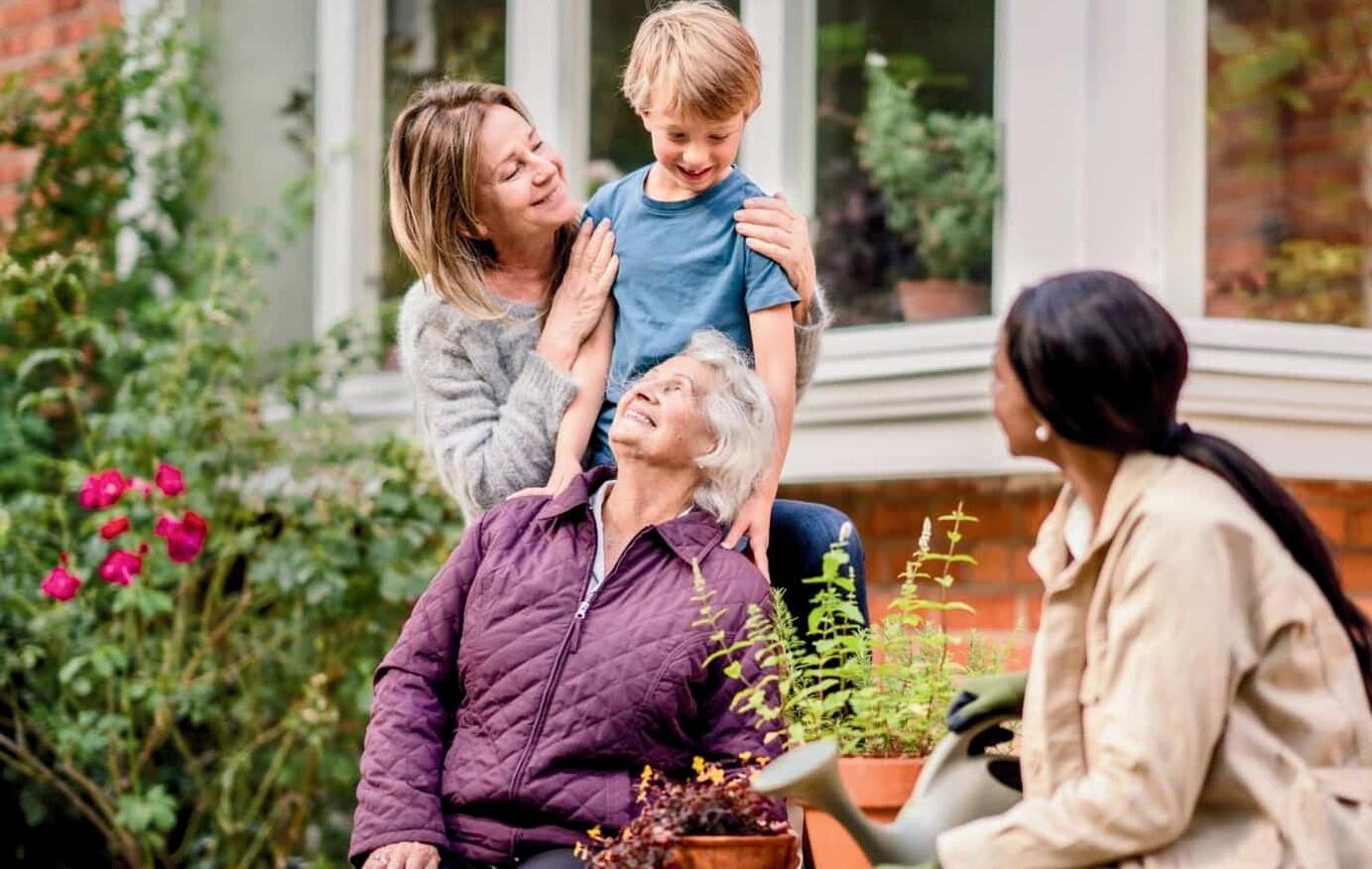

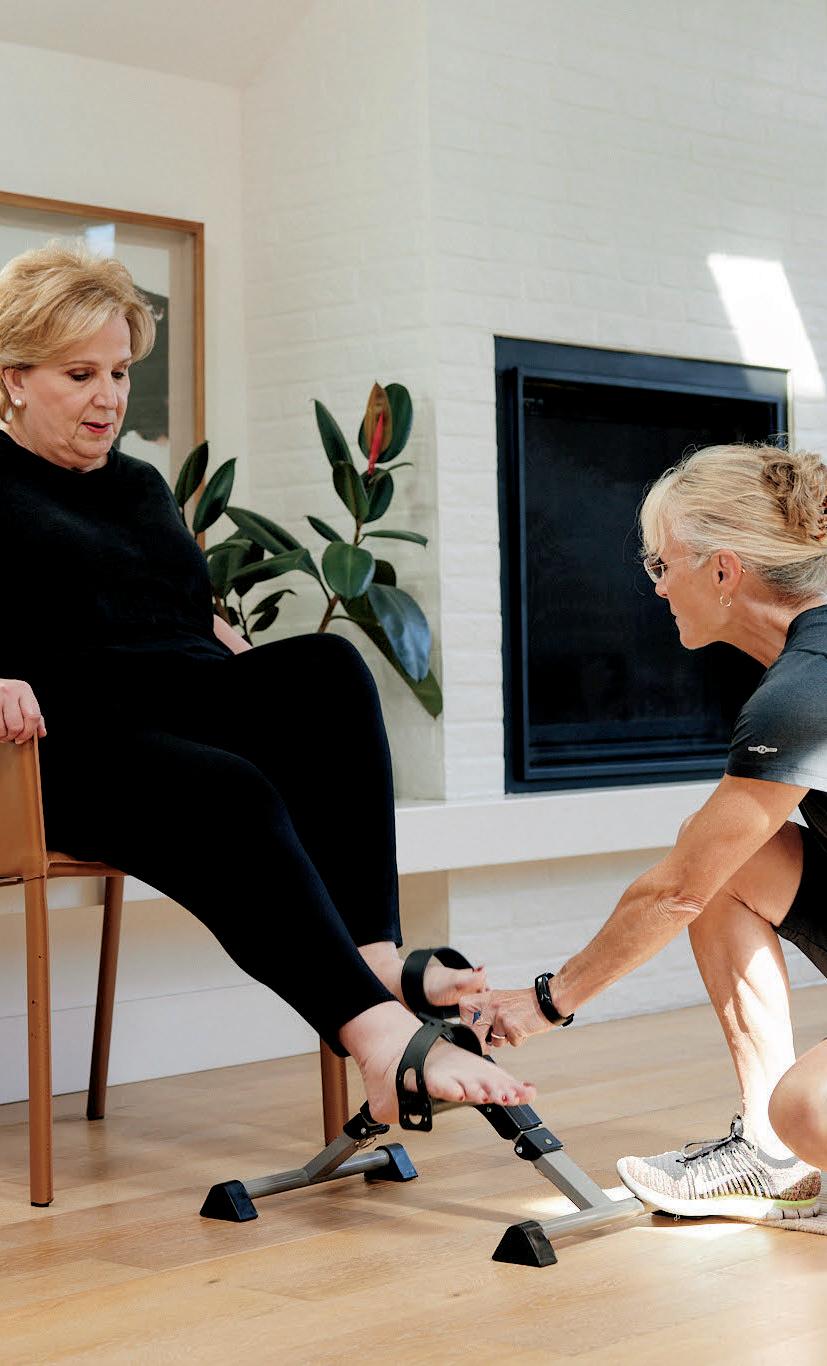
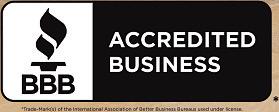

Each year hundreds of thousands of older persons are abused, neglected, and exploited. Many victims are people who are older, frail, vulnerable and can’t help themselves and depend on others to meet their basic needs. Abusers of older adults are both women and men.
The World Health Organization defines elder abuse as, “Single or repeated acts, or lack of appropriate action, occurring within a relationship where there is an expectation of trust, which causes harm or distress to an older person.”
In general, elder abuse refers to any knowing, intentional, or negligent act of violence, mistreatment or neglect of older adults at the hands of any individuals in situations of power or trust, including: spouses, children, other family members, friends, caregivers and service providers. It can occur in either private residences or facilities.
Elder abuse can take many forms:
◗ Neglect (by others).
◗ Physical abuse.
◗ Sexual abuse and sexual exploitation.
◗ Psychological and emotional abuse.
◗ Financial exploitation (stealing or misusing an elderly person’s money or possessions).
◗ Institutional abuse (overcrowded, substandard and/or
unsanitary living environments).
◗ Violation of rights (restricting liberty and privacy).
◗ Spiritual abuse (restricted or denied religious and spiritual practices, customs or traditions).
◗ Abandonment.
Elder abuse is never acceptable. If you or someone you know is being abused, REPORT IT TO THE POLICE!
INDICATORS OF ELDER ABUSE
While one sign doesn’t necessarily indicate abuse, some tell-tale signs there could be a problem are:
◗ A sudden change in behaviour or appearance.
◗ Unexplained injuries.
◗ Unexplained changes in financial situation.
◗ Conflicts between elder and caregiver.
◗ Lack of basic care (like a clean environment and cleanliness).

Most people feel safe in their home. Yet, many Canadians fail to take even fundamental precautions to secure their homes against robbery. There are some precautions you can take that will reduce the opportunities that a burglar is looking for.
◗ Conduct a security check of your home to determine possible entry points and any weaknesses they may have.
◗ Keep all entrances and garages well-lit at night.











SECURITY IN YOUR HOME – CONT.
◗ Don’t leave tell-tale signs that you are away, such as leaving your curtains undrawn at night, an absence of a car in the driveway, dark house (lights off) and telling your friends and family on social media about an upcoming holiday.
It is important to take extra care in securing your home when you are going away for any extended time. Not only should your home be secure but it should also appear lived in.
◗ Lock all windows, doors and garages before you leave.
◗ Leave a radio playing to show that someone is home.
◗ Leave one or two lights on, or use timers that turn on according to how dark it is.
◗ Stop mail and newspaper deliveries.
◗ Arrange to have someone pick up any newspapers, mail or flyers left on your doorstep.
◗ Leave a key with someone you trust.
◗ Install good locks and always use them.
◗ Install a wide-angle viewer in your front door which allows you to see visitors before you open the door.
◗ Never open a door to strangers without credentials.
◗ Change your routine often. Burglars often watch activities in a neighbourhood.
◗ Don’t keep large amounts of money in your home.
◗ Mark valuable items for identification. The operation identification program has been developed by police to assist people in marking their property.
◗ Keep valuables in a safety deposit box at your bank. If this isn’t possible, keep them locked up in a reasonable hiding place in your home.
TIP: A few inexpensive but rich-looking pieces kept in the jewelry box as a decoy may deter criminals from further damaging your home in search of valuables.

◗ Let a trusted neighbour know you’re going to be away, for how long, and how they can contact you if necessary.
◗ Arrange to have someone cut the grass or shovel the snow if you plan to be away for several days.
If street crimes (purse snatching, robberies, assaults, etc.) are a problem in your neighbourhood and you have a fear of being a victim, there are ways in which you can reduce the risk of abuse and increase your sense of security.
◗ Walk only in well-lit areas.
◗ Don’t burden yourself with packages and a bulky purse.
◗ Never display large sums of money in public.
◗ Go shopping in pairs or in a group.
◗ Walk in the centre of the sidewalk, away from alleys and doorways.
◗ If you suspect you are being followed, cross the street, go to the nearest home, service station or business and call the police.
◗ Be aware of your surroundings and avoid areas that increase your chances of being assaulted.
◗ Report problem areas to police. The police welcome the information and can also advise you of prevention methods.



Taking care of each other is what community is all about Established in 1937, Hollybur n Funeral Home has served the residents of North Vancouver and West Vancouver for more than 80 years. Much has changed since that time, but our commitment to providing compassionate care to families in a diff icult time never will.
1807 Marine Dr ive,West Vancouver 604.922.1221 | hollybur nfunerals.com


WHAT IF . . . your vehicle breaks down?
◗ Pull your vehicle off the road so you will be out of the traffic.
◗ Turn on the emergency (four-way) flasher.
◗ Stay in your vehicle with all doors locked and windows rolled up.
◗ If possible, call family or emergency road assistance and wait for help to come to you.
◗ Should a passing motorist stop, stay in your car and ask him/her to send help back to you.
The “In case of emergency (ICE)” campaign promotes that you store the word “ICE” in your cell phone address book, and link it to the number of your designated contact person in case of emergency. For more than one contact name use ICE1, ICE2, ICE3, etc.
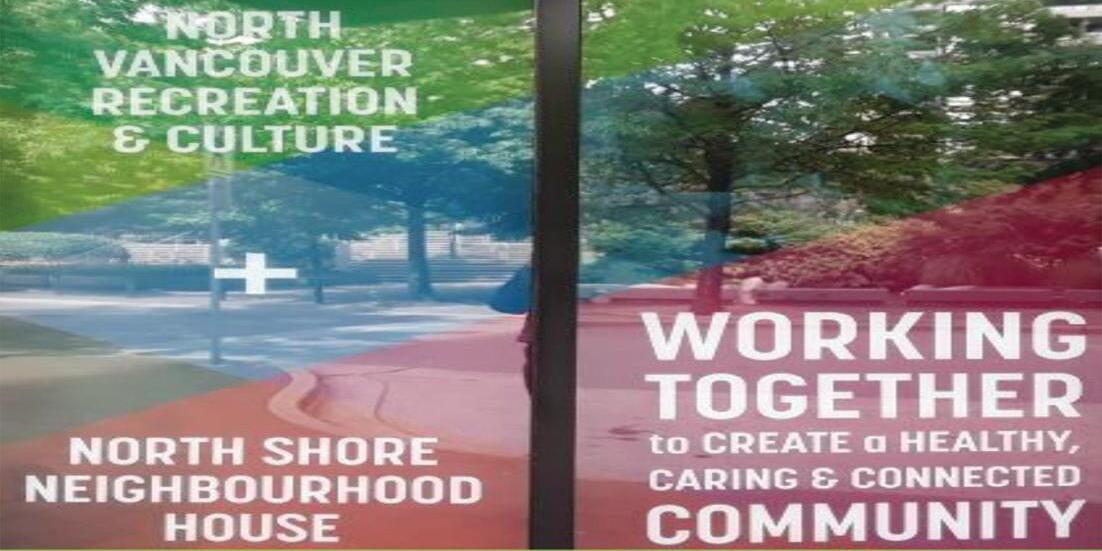

The NSNH Seniors Centre at JBCC is a warm and welcoming community space for adults 55+ where they come to exercise, learn, play, socialize, volunteer, take bus trips, have fun and make new friends. We offer fitness, art, music, wellness, language, socialization and dementia programs, low-cost activities and games as well as variety of free services including the Seniors Peer Support, information and referral programs. referral programs.
604-983-6496 www.nsnh.bc.ca
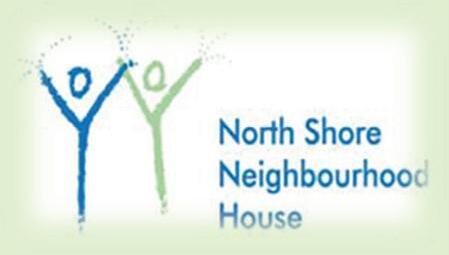
◗ Keep your vehicle locked at all times, whether moving or parked.
◗ If you are driving at night, use well-lit streets and parking lots that are open for easy observation.
◗ Be cautious of any stranger approaching your vehicle. If you feel you are in danger, press the horn repeatedly in short blasts; this will attract attention.
◗ If you think you are being followed, pull in to the nearest gas station or safe place. Don’t drive home.
◗ Plan and know your route before you leave, whether it is for a short drive in the city or a long trip in the country. Consider using a Global Positioning System (GPS) if you travel frequently to help avoid getting lost.
◗ Don’t pick up hitchhikers.
◗ View the interior of your car before getting in to make sure no one is hiding inside, even if the doors are locked.

◗ Have keys in hand so you don’t have to linger before entering your car.
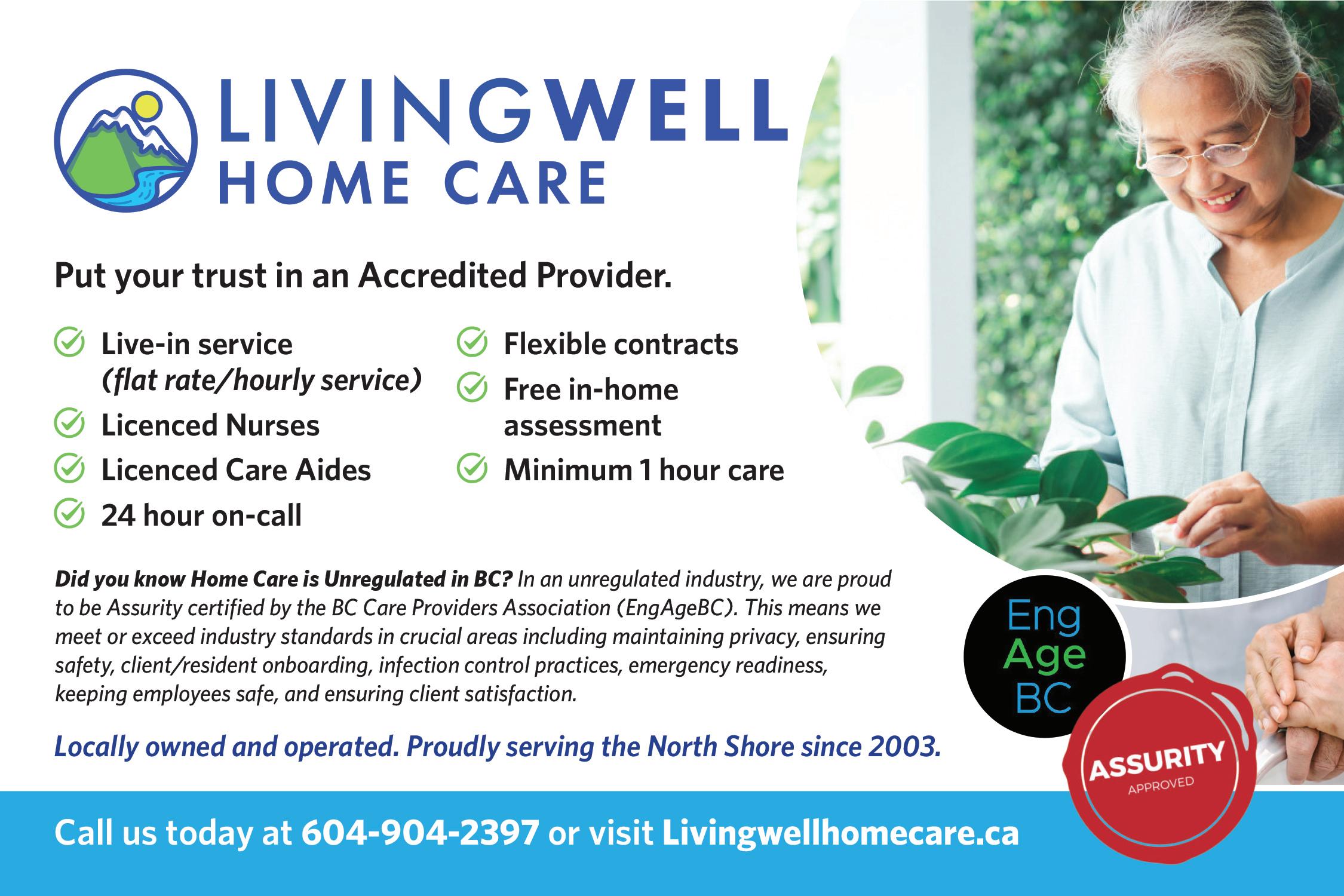
In the world of fraud prevention and investigation, the two most used phrases are “buyer beware” and “you don’t get something for nothing.” Remember those phrases and repeat them to yourself whenever you receive any solicitation, particularly when it is by telephone. When an offer is too good to be true, it probably is. It is your responsibility to be alert, to be familiar with common frauds and scams, and to be well informed on tips that may prevent you from becoming a victim of fraud. If you believe you have fallen victim to a scam, call and report the incident to your local police.


Wondering about Old Age Security (OAS), Guaranteed Income Supplement (GIS) or Canada Pension Plan (CPP)?
Navigating these and other Federal programs can be puzzling. We can help.

A scammer contacts an elderly person and pretends to be a grandchild or a family member in need of immediate financial assistance. In this typical scenario the scammer will tell the victim that they have been arrested and requires bail money, have been in a car accident, need money to cover hospital costs or are having trouble returning from a foreign country. For verification, the elderly person is given a phone number to call, which will be answered by someone pretending to be a lawyer or a police officer.
The scammer will ask questions during the call, getting the victim to volunteer personal information. The “grandchild/ family member” will insist that the victim not contact their parents or relatives as they don’t want to get into more trouble. The victim is then asked to use a money service business to send several thousands of dollars.
◗ Police, judges or legal entities will never request that money be sent through money service businesses.
◗ Confirm with other relatives the whereabouts of the family member or friend in question before even considering sending money.
◗ Never send money through money wire services to persons you don’t know personally. Verify the person’s identity before you take any steps to help.

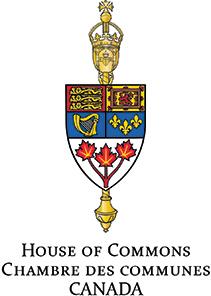
JO N ATH AN WILK INS O N Member of Parliament, North Vancouver (604) 775-6333
Jonathan.wilkinson@parl.gc.ca
There is a growing number of seniors who are turning to the internet to find love. Unfortunately, scammers know this and use every type of dating or social networking site to seek out potential victims.
The scammer will gain the trust of the victim through displays of affection and will communicate through the phone and email for months if needed to build that trust. The scammer will claim to be located in a foreign country and will always come up with an excuse to prevent faceto-face interactions. The scammer will ask for money using excuses such as not having enough money to travel to come visit or having medical expenses they can not pay.
◗ Don’t give out any personal information in an email or when you are chatting online with a stranger.
◗ Be careful communicating with someone who claims to fall in love with you quickly.
◗ Don’t accept any funds or send the person any money for any reasons.
◗ Beware of fake dating sites. Scammers will host and create fake accounts to lure potential victims.
An extortion scam is when any person unlawfully obtains money, property or services from a person, entity, or institution, through coercion. There are many variations of extortion scams but the Canada Revenue Agency (CRA) and Immigration, Refugees and Citizenship Canada (IRCC) scheme are the most prevalent ones.











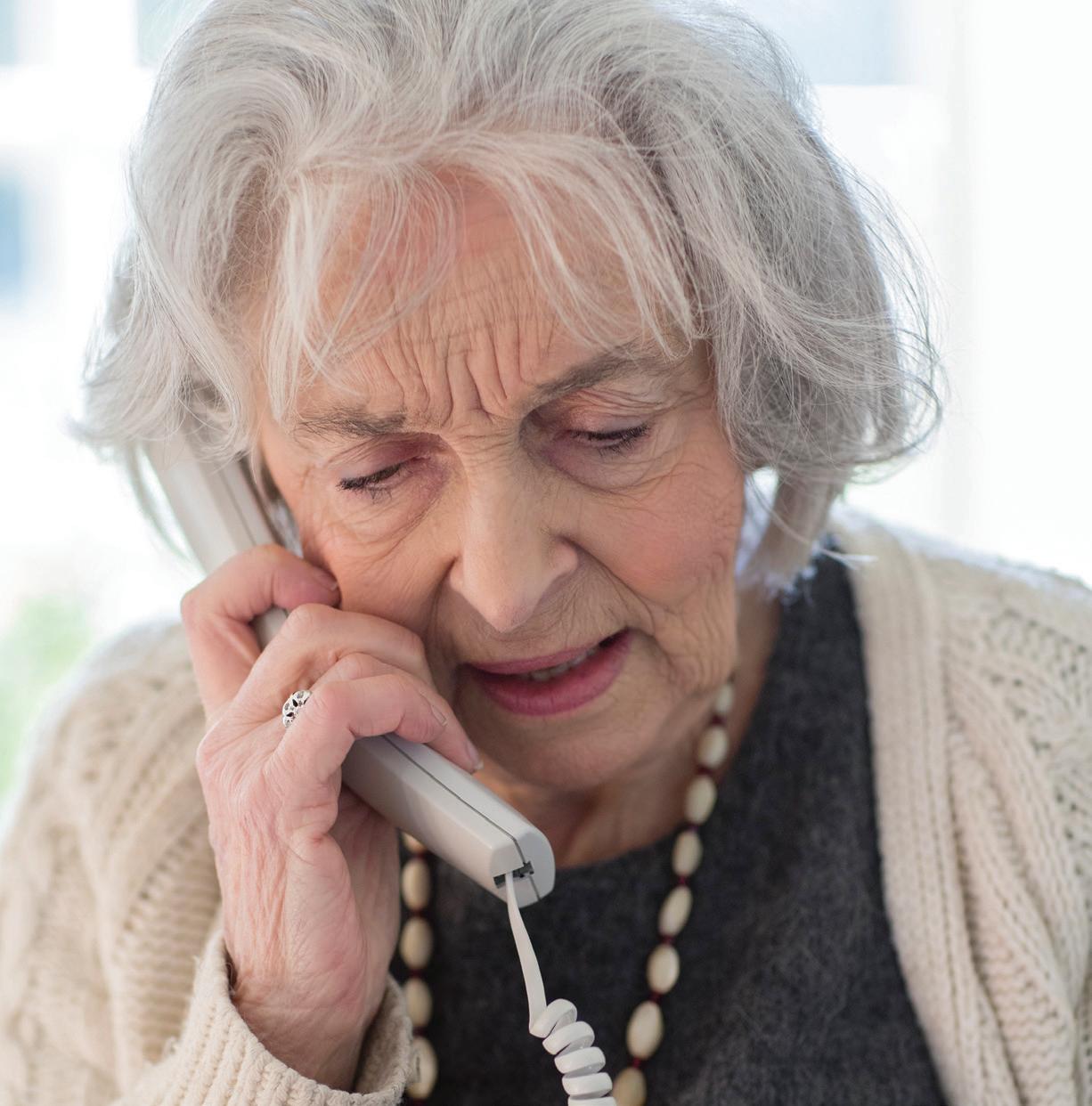
Seniors are being targeted by fraudsters impersonating real government officials. Scammers are using phone calls or email to lure people into giving personal information, passwords and financial data from individuals. For example:
◗ There is a notification by phone or email from the “CRA” claiming there is a refund pending. In order for the recipient to receive the refund personal information is requested.
◗ A notification by phone or email is received about “back taxes” owed as the result of an audit. The payment must be made immediately to avoid a fine, and in some cases, individuals are told they will be arrested or deported if the taxes aren’t paid right away.
◗ Government agencies won’t threaten you or ask for payment by prepaid credit card, or a money wire service such as MoneyGram or Western Union.
◗ Contact the real agency or company to confirm that you owe back taxes or have an unpaid balance, or are entitled to a refund.
◗ Ask yourself why an employee would be asking for personal information over the phone that they likely already have on file for you.
A service scam is any false, deceptive, or misleading promotion or solicitations for paid services. The two most reported service scams targeting Canadians are the antivirus software scam (Microsoft/Windows Technician) and lower interest rate scams.
The scammers involved in the antivirus software scam promise to repair your computer over the internet. This can involve the installation of software or permission to have remote access to your computer. Downloading software from an unknown source or allowing someone to remotely access your computer is risky because they may be used to capture your personal information.
The people behind lower interest rate scams often impersonate financial institutions and claim to negotiate with credit card companies to lower your interest rates. They guarantee they can save you thousands of dollars in interest. The caller will tell you that the lower interest rates are for a limited time only and that you need to act now. In addition, the scammer will request a “one time” upfront fee to process the lower interest.
◗ No legitimate company will call and claim your computer is infected with a virus.
◗ If you are having problems with your operating system, bring it to a local technician.
◗ Beware of scammers advising you of an unauthorized charge on your credit card account and requesting your credit card number.
◗ Verify any calls with your credit card company by calling the phone number on the back of your credit card.
◗ Only your credit card company can lower your interest rate.
Scammers can use the Internet to promote fraud through unsolicited or junk emails, known as spam. Even if they only get a handful of replies from the millions of emails they send out, it is still worth their while. Be wary of replying, even just to “unsubscribe,” because that will give a scammer confirmation that they have reached a real
email address. Any email you receive could be spam if it comes from a sender you don’t know, isn’t specifically addressed to you, and/or promises you some benefit.
Malicious software - Scammers try to install this software on your computer so that they can gain access to files stored on your computer and other personal details and passwords. Scammers use a wide range of tricks to get their software onto your computer. They may trick you into clicking on a link or pop-up message in a spam email, or by getting you to visit a fake website set up solely to infect people’s computers.
Phishing scams are all about tricking you into handing over your personal and banking details to scammers. The emails you receive might look and sound legitimate but genuine organizations like a bank or a government authority never request personal information by an email or online. Delete phishing emails. They can carry viruses that can infect your computer. Don’t open any attachments or follow any links in phishing emails.
Online auctions and Internet shopping can attract scammers. Scammers will often try to get you to deal outside of online auction sites. They may claim the winner of an auction that you were bidding on has pulled out and offer the item to you. Once you have paid, you will never hear from them again and the auction site won’t be able to help you.
◗ Secure your computer by activating your firewall and using an anti-virus/malware software.
◗ Keep your operating system current with the latest system update.
◗ Set your social networking profiles to private.
◗ Only use payment methods recommended by the Internet auction site.

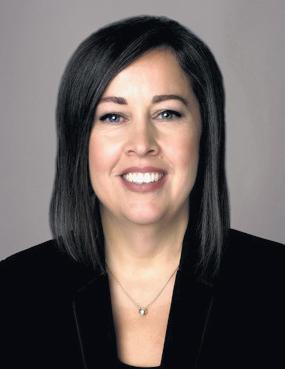

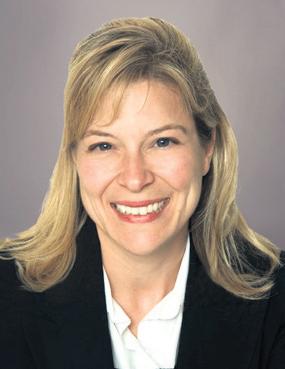
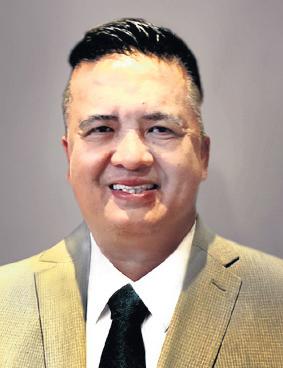
The Nigerian scam (also called the 419 fraud) has been on the rise since the early-to-mid 1990s in Canada. Although many of these sorts of scams originated in Nigeria, similar scams have been started all over the world. These scams are increasingly referred to as “advance fee fraud.” Typically, you receive an email or letter from a scammer asking your help to transfer a large amount of money overseas. You are then offered a share of the money if you agree to give them your bank account details to help with the transfer. They will then ask you to pay all kinds of taxes and fees before you can receive your “reward.” You will never be sent any of the money, and will lose the fees you paid.
Then there is the scam email that claims to be from a lawyer or bank representative advising that a long-lost relative of yours has died and left you a huge inheritance The “inheritance” is likely to be non-existent and, as well as losing any money you might have paid to the scammer in fees and taxes, you could also risk having your identity stolen.
If you are selling products or services online or through newspaper classifieds, you may be targeted by an overpayment scam. You may receive payment from a

customer by cheque or money order, but the amount you receive is more than the agreed price. If you are asked to refund the excess amount by money transfer, be suspicious. The scammer is hoping that you will transfer the refund before you discover that their cheque or money order was counterfeit. You will lose the transferred money as well as the item if you have already sent it.
◗ Be wary if approached by someone asking you to transfer money for them.
◗ Never send money, or give credit card or account details to anyone you don’t know and trust.
◗ Don’t accept a cheque or money order for payment for goods that is more than what you agreed upon. Send it back and ask the buyer to send you payment for the agreed amount before you deliver the goods or services.
◗ Don’t reply to any email that requests your personal information.
Charity scams take advantage of people’s generosity and kindness by asking for donations to a fake charity or by impersonating a real charity. They involve scammers collecting money by pretending to be a real charity. The scammers can approach you in many different ways—on the street, at your home, over the phone, or on the Internet. Emails and collection boxes may even be marked with the logos of genuine charities.
Not only do these scams cost people money; they also divert much needed donations away from legitimate charities and causes. You can check for registered charities by searching in the CRA database, or contact your local Better Business Bureau to see if they have any information about the organizations that interest you. If you don’t want to donate any money, simply ignore the email or letter, hang up the phone, or say no to the person at your door. You don’t have to give any money at all.
◗ If you have any doubts at all about the person asking for money, don’t give them any cash, credit card or bank account details.
◗ Never give out your personal, credit card or online account details over the phone unless you made the call and the phone number came from a trusted source.
◗ If in doubt, approach an aid organization directly to make a donation or offer support.
In lottery or sweepstake scams, seniors are solicited over the phone or email and advised that they are the winner. Prior to receiving any winnings, they are told they must first pay an upfront fee or provide personal information. No winnings are ever received. You can’t win money or a prize in a lottery unless you have entered it yourself, or someone else has entered it on your behalf. You shouldn’t have to pay any fee or tax to claim a legitimate prize.
A fake prize scam will tell you that you have won a prize or a contest. You may receive a phone call, an email, a text message or see a pop-up screen on your computer. The scammers make their money by making you pay fees or taxes, call their premium rate phone numbers or send premium text messages to claim your prize. These premium rate calls can be very expensive, and the scammers will try to keep you on the line for a long time or ask you to call a different premium rate number.
◗ Legitimate lotteries don’t require you to pay a fee or tax to collect a winning.
◗ Never send money, or give credit card or account details to anyone you don’t know and trust.
◗ Examine all of the terms and conditions of any offer very carefully—claims of free or very cheap offers often have hidden costs. Calls to premium rate phone numbers or premium text messages can be very expensive.
◗ You can’t win money or a prize in a contest unless you have entered it yourself, or someone else has entered it on your behalf.
Any false, deceptive, misleading or fraudulent investment opportunity, often offering higher than normal true monetary returns.
In a typical pyramid scheme, unsuspecting investors are encouraged to pay large membership fees to participate

in money-making ventures. The only way for you to ever recover any money is to convince other people to join and to part with their money as well. People are often persuaded to join by family members or friends. But there is no guarantee that you will recoup your initial investment. Although pyramid schemes are often cleverly disguised, they make money by recruiting people rather than by selling a legitimate product or providing a service. Pyramid schemes inevitably collapse and you will lose your money. In Canada, it is a crime to promote a pyramid scheme or even to participate in one.
Ponzi schemes are fraudulent investment operations that work in a similar way to pyramid schemes. The Ponzi scheme usually entices investors by offering abnormally high, short-term returns that are unusually consistent. The schemer usually interacts with all the investors directly, often persuading most of the existing participants to reinvest their money, thereby minimizing the need to bring in new participants.
◗ Pyramid and Ponzi schemes may be sent to you from family members and people you trust. They might not know they’re involved in an illegal scam.
◗ Be wary of fraudsters requesting large wire transfers to foreign countries for an offshore investment.
◗ Never commit to anything at high-pressure meetings or seminars.
◗ Be wary of fraudsters promising an investment opportunity with a higher than normal return.
◗ Be an informed investor and check with you provincial securities regulator.
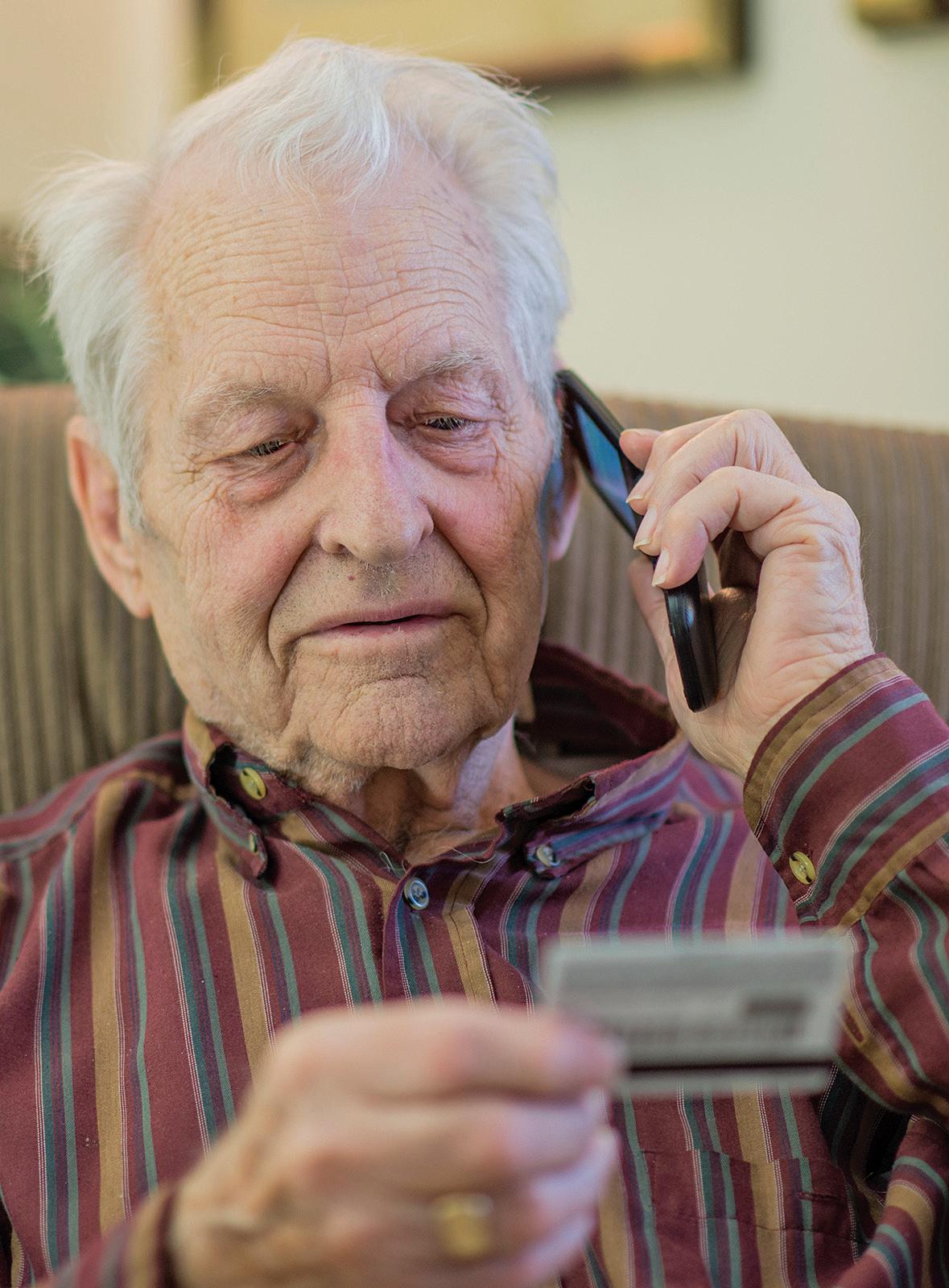
Miracle cure scams offer a range of products and services that can appear to be legitimate alternative medicines, usually promising quick and effective remedies for serious medical conditions. The treatments claim to be effective against a very wide range of ailments and are often promoted using testimonials from people who have used the product or service and have been “cured.”
Weight loss scams promise dramatic weight loss with little or no effort. The products are promoted with the use of false claims such as “lose 10 kilos in 10 days” or “lose weight while you sleep,” and often require large advance payments or that you enter into a long-term contract to participate in the program.
Fake online pharmacies use the Internet and spam emails to offer drugs and medicine at very cheap prices and/
or without the need for a prescription from a doctor. If you use such a service, there is no guarantee that you will receive the medication or that the medication is real. There are legitimate online pharmacies but they will require a valid prescription before they send out any medicine that requires one.
◗ There are no magic pills, miracle cures or safe options for serious medical conditions or rapid weight loss.
◗ Don’t trust an unsubstantiated claim about medicines, supplements or other treatments. Consult your healthcare professional.
◗ Check for published medical and research papers to verify the accuracy of the claims made by the promoters.
Identity crimes have become an increasingly popular crime as a result of continuous advances in technology. Identity thieves are stealing, misrepresenting or hijacking the identity of another person or business which provide them effective means to commit other crimes.
Vital information such as name, address, date of birth, social insurance number, and mother’s maiden name need to be acquired in order to complete the impersonation. Identity thieves can take over the victim’s financial accounts, open new bank accounts, transfer bank balances, apply for loans, and so on. The true owner may be liable for these activities.
◗ Only give out personal details and information where it is absolutely necessary and when you trust the person you are speaking to or dealing with.
◗ Destroy personal information: You should cut up or shred old bills, statements or cards.
◗ Treat your personal details like you would treat money: don’t leave them lying around for others to take.
◗ Immediately report lost or stolen credit cards and any discrepancies in your monthly statements.
1 Source for content under Fraud and Scams section: Little Black Book of Scams (Competition Bureau), Scam Digests and SeniorToolkit (Canadian Anti-Fraud Centre).
Alzheimer’s disease is a disease of the brain that causes symptoms of dementia such as memory loss, difficulty performing daily activities, and changes in judgement, reasoning, behaviour, and emotions. These dementia symptoms are irreversible, which means that any loss of abilities can’t come back.
Other dementias also involve irreversible changes in the brain. They include vascular dementia, frontotemporal



dementia, Lewy body dementia and others. People with dementia should have the opportunity to move about as freely as possible, but due to changes in the brain, they may lack the judgement and reasoning to do so independently and safely. Walking in of itself isn’t harmful when done in a safe environment and can be a healthy outlet for a person with dementia. However the balance between risk and safety is delicate, as unsafe walking can put the person in danger, such as walking into traffic or being inappropriately dressed for the weather.
◗ Register the person with dementia with the MedicAlert® Safely Home,® a program that assists emergency responders in identifying the person if they go missing. For further information about MedicAlert® Safely Home® or to contact your local Alzheimer


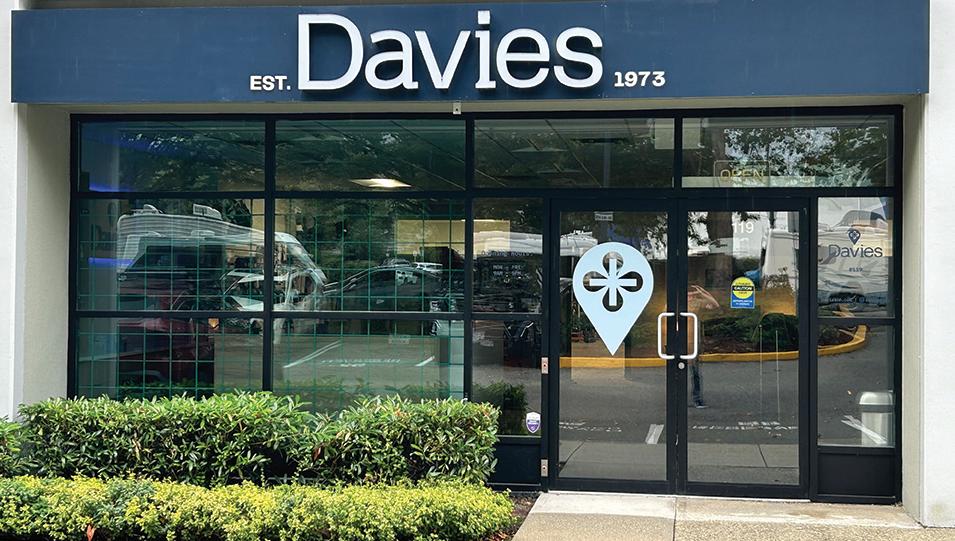
Society, please refer to the list at the back of this booklet.
◗ Engage the person in activities and exercises which can reduce anxiety, agitation, and restlessness.
◗ Install locks out of the line of sight (e.g., high or low on exterior doors) or place slide bolts at the top or bottom.1
◗ Camouflage doors and door knobs with removable curtains or screens.2
◗ Use devices that signal when a door or window is opened, such as a bell placed above a door or an electronic home alarm.3
◗ Provide supervision. Never lock the person with dementia in at home alone or leave him or her in a car without supervision.4
◗ Keep car keys out of sight. A person with dementia may drive away and be at risk of causing harm to self or others.5
1-5 Source: Alzheimer’s Association of the U.S.A. Content adapted with permission.

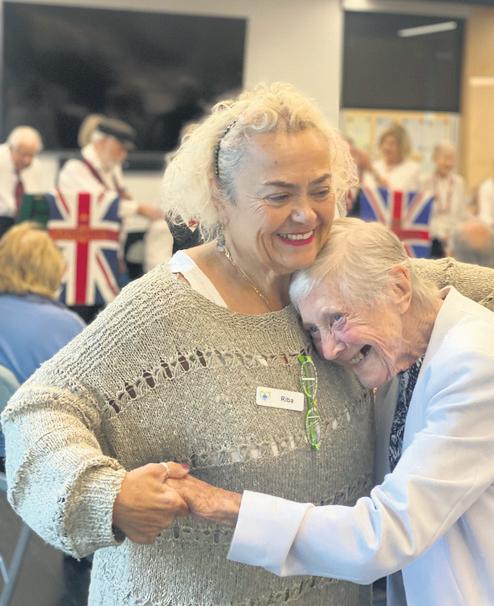
One way to protect yourself and your assets is through the use of a Power of Attorney. A Power of Attorney is a legal document which empowers a person or persons of your choice to act on your behalf for financial or personal care decisions.
You may give a Power of Attorney for Property if you want someone to help you manage your finances. A Continuing Power of Attorney for Property allows the chosen person to go on acting for you if you become mentally incapable of managing your property.
The naming of a person in a Power of Attorney document is important and that person should be of your choosing.
A will is one of the most important documents you will ever write. It is your opportunity to record your wishes for the dispersal of your property in the event of your death. If you’re the legal caregiver for your grandchildren (who are minors), you may stipulate who you wish to be their guardian in your will. You can also record your wishes for your pet. A potential guardian should be asked beforehand if they are willing to take on the responsibility
It can be a relative, a friend or a professional you trust. The person you have appointed is required to act in your best interest and should keep an accurate account of money transactions.
A Power of Attorney for Personal Care enables the person you choose to make personal care decisions for you such as health care, personal hygiene, nutrition, shelter, clothing and safety. It only takes effect if you become incapable of making some or all of these decisions for yourself. Powers of Attorney Kits are commercially available. You may also wish to contact a lawyer of your own choosing to assist you when completing these documents.
The loss of someone you love is very traumatic and while you are coping with the grief in these difficult times, someone may be looking to take advantage of the situation. Posting obituaries and funeral times are a normal part of funeral planning but it also announces that no one will be home and that it may be the perfect opportunity to steal unused medication and valued possessions. Be aware and if possible, ask someone to stay in your home when you are away at the funeral.
for grandchildren or pets.
It is best to use the services of a lawyer of your own choosing when making out a will. All documents should be read and understood before you agree to sign them. If you have been forced or coerced into signing a will or any other document, contact your local police.
A secure environment takes more than locks and lights. It involves working with your neighbours and the local police in identifying community problems and implementing programs and services to create a safer and more secure environment.
Contact your police department in order to obtain information on programs available in your area and to provide suggestions for new initiatives.
Please consult legal advice to ensure information provided here is valid for B.C.
The information in this booklet has been provided by the North Vancouver RCMP and provides general safety and security information for the prevention of crime and your well-being. Isolation, media sensationalism, physical and social changes in one’s life can lead to a heightened sense of vulnerability. By becoming involved in your community and participating in crime prevention programs, you can reduce your sense of vulnerability.
There is evidence that some people who have been victimized are too embarrassed to report the incident to the authorities. For your own well-being and to help others from becoming victims, if you have been victimized (or think you have been) REPORT THE CIRCUMSTANCES IMMEDIATELY TO YOUR LOCAL POLICE DEPARTMENT.
Additional information on your safety and security can be obtained from the organizations listed below or by contacting your local police department.
Police/Fire/Ambulance: ........................................................ 911 Crime Stoppers: ............................................. 1-800-222-8477
Seniors Distress Line: ...................................... 604-872-1234
Victim Link BC: 1-800-563-0808 Victim Services
North Vancouver RCMP: 604-969-7540
West Vancouver Police: ............................... 604-925-7468
Canada Revenue Agency: 1-800-959-8281
Canadian Anti-Fraud Centre: .................. 1-888-495-8501
Canadian Council of Better Business Bureau: ............................ 1-416-644-4936
Better Business Bureau online Scam Tracker: www.bbb.org/scamtracker
BC Mental Health Support Line: ................................... 310-6789 (no area code) First Link® Dementia Help Line: ............. 1-800-936-6033
Office of the Seniors Advocate: ............. 1-877-952-3181
ReAct Adult Protection (VCH): 1-877-732-2899

Cherian Itty Owner
Comfort KeepersHome Care

604-998-8806 comfortkeepers.ca/northandwestvancouver @ComfortKeepersNorthandWestVancouver
Amir Mohammadi B.Sc BMET Biomedical Engineering Technologist 604-912-0106 AdvancedMedicalBC.ca @AdvancedMedicalBC




My Home Rehab &Physiotherapyfor Seniors MobileTherapists 604-338-4912 myhomerehab.ca info@myhomerehab.ca
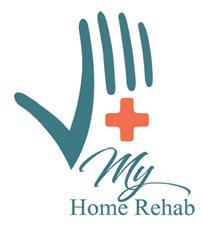
Deb Chmelauskas
Occupational Therapist/Dementia Consultant 604-551-7307 betterbrains.ca


JaniceBoudreau
Occupational Therapist/Owner
Aging at Home Occupational Therapy 778-636-6149 janice@agingathomeoccupationaltherapy.ca
PegahArasteh
PharmacistManager
Wellness Pharmacy 604-971-5400 wellpharmacy.com @yourwellnesspharmacy

Dr.SolamitaAvanessian Optometrist




Providing qualityeyecare and eyewear 604-210-8882 cura2020.com @cura_eyecare
Mandy Fisch MSC.RAUD, RHIP
RegisteredAudiologist/Owner 604-281-3691 Hearinglife.ca 829@hearinglife.ca
Cynthia Gyuk RSW, BSW BCCSWRegisteredSocial Worker Offering supportingrief/anxiety &depression/ lifecareplanning 604-715-8550 meaningfulendings.com
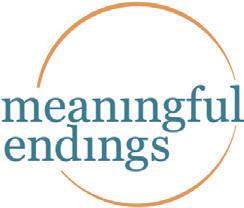
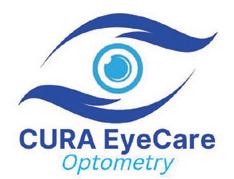
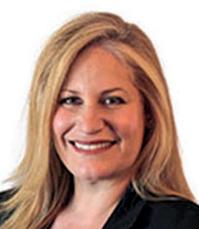

We area group of localbusiness owners sharing acoregoalofproviding service and support to seniorsonthe North Shore. northshoreseniors.ca
Gary Born Personal Real Estate Corporation 604-787-9418 gary@garyborn.com garyborn.com
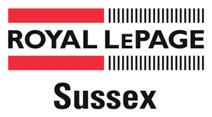
Westcoast Wills&Estates Lawyers Wills|Probate |CorporateLaw 604-230-1068 westcoastwills.com @westcoastwills
Judie Dahl Taking Care of all Aspects of your Move 604-210-7015 yourmovingconcierge.ca


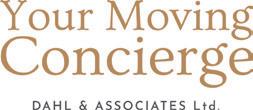

Doreen(Dee) Gregson CLU, CH.F.C., CFP® Financial Advisor |AgencyOwner GregsonInsurance& Investment Solutions Inc. 604-983-7011 gregson_insurance@cooperators.ca

Abegael Fisher-Lang LifeThreads Ceremonies Contemporary LifeCycle Celebrant 604-715-5168 lifethreads.ca

JeffersonLee DignityMemorial 604-603-6004 jefferson.lee@dignitymemorial.com dignitymemorial.ca




Marci Deane Mortgage Broker AskMarci About Reverse Mortgages–Mortgage Architects 604-816-8950 askaboutreversemortgages.ca
DarrylHobbs Owner TranquilityLandscaping Inc. 604-396-7965 tranquilitylandscapinginc.com


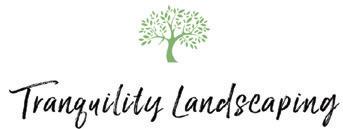

Accidents happen. You fall while skiing. Acar hits your vehicle. You needsurgery to have ahip replacement. When lifehappens to you and you need recovery time, here arethree tips.
1. Shylo can help with: shopping, meals and laundry.
2. Our nurses can help with pain management.
3. The best waytorest is to let us take careofyou and your home.
It’s okay to ask for help! We cancometoyour home, residential care facility or hospital. Call 604-985-6881 for a FREE Health Assessment.



